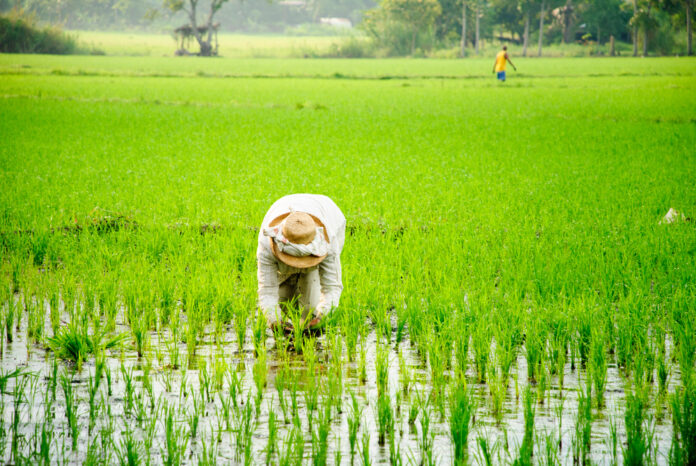Congress needs to re-assess and amend the Rice Tariffication Law (RTL) amid the current spike in rice prices as this could lead to a crisis later this year, according to the Federation of Free Farmers (FFF).
“Clearly, the proponents of the RTL did not anticipate a situation like now, where both imports and local production are low and government is estopped from importing rice. We must also introduce additional safeguards to protect our farmers in the reverse situation where farmgate prices are depressed due to excessive imports,” the group said on Monday.
Agriculture stakeholders assert the price of imported rice now range from $490 to $520 per metric ton (MT) or P36 per kilo landed cost, which is more expensive than locally-procured rice.
The FFF reemphasized the RTL removed government control over rice imports and fully liberalized the rice trade with the drop in local palay production caused by high fertilizer prices that further discouraged farmers from planting.
“Based on official data from the Philippine Statistics Authority and import volumes reported by the Bureau of Customs, the FFF estimated palay output in 2022 of only 16.4 million MT. This was 3.57 million (MT) or 18 percent lower than the harvest volume in 2021,” the group said.
FFF also said that despite record high imports of 3.84 million MT of rice in 2022, the carryover rice stock going into this year amounted to only 1.765 million MT, which is good for only 48 days against the ideal average of 80 to 100 days.
“The decline in carryover stocks has coincided with the increase in international price of rice. As a result, imports the first quarter of 2023 amounted to only 790,000 MT compared to 927,000 MT in 2022. Based on FFF projections, an additional 1.2 million MT of imported rice may be needed to attain a 60-day national stock level before the onset of the July-to-September lean months,” the group said.
The FFF also said the government plan to import 330,000 MT should not compensate for the supply gap in case the private sector decides to scale down its import activities. It likewise questioned the import activities of the National Food Authority (NFA) mandated by the RTL to procure buffer stock only from local farmers.
“Ironically, the plan to import rice may resurrect concerns about government interference in the rice trade, especially if the NFA undersells private traders in the market or government imposes price controls. This will further discourage traders from importing rice,” said Raul Montemayor, FFF national manager.
“If the government courses the importation through another agency, it still violates the RTL’s principal policy of fully entrusting the management of the rice market, including imports, to the private sector,” Montemayor added.
The FFF said that instead of importing, the government needs to raise its palay procurement price or procure them from farmers and their organizations via auction and similar structures instead of relying on imports to augment NFA inventory.







